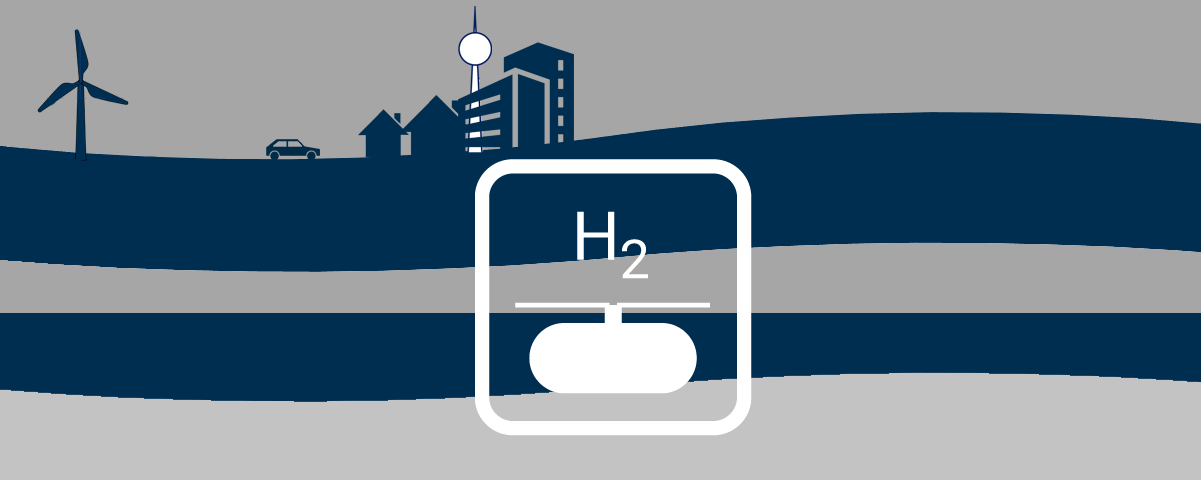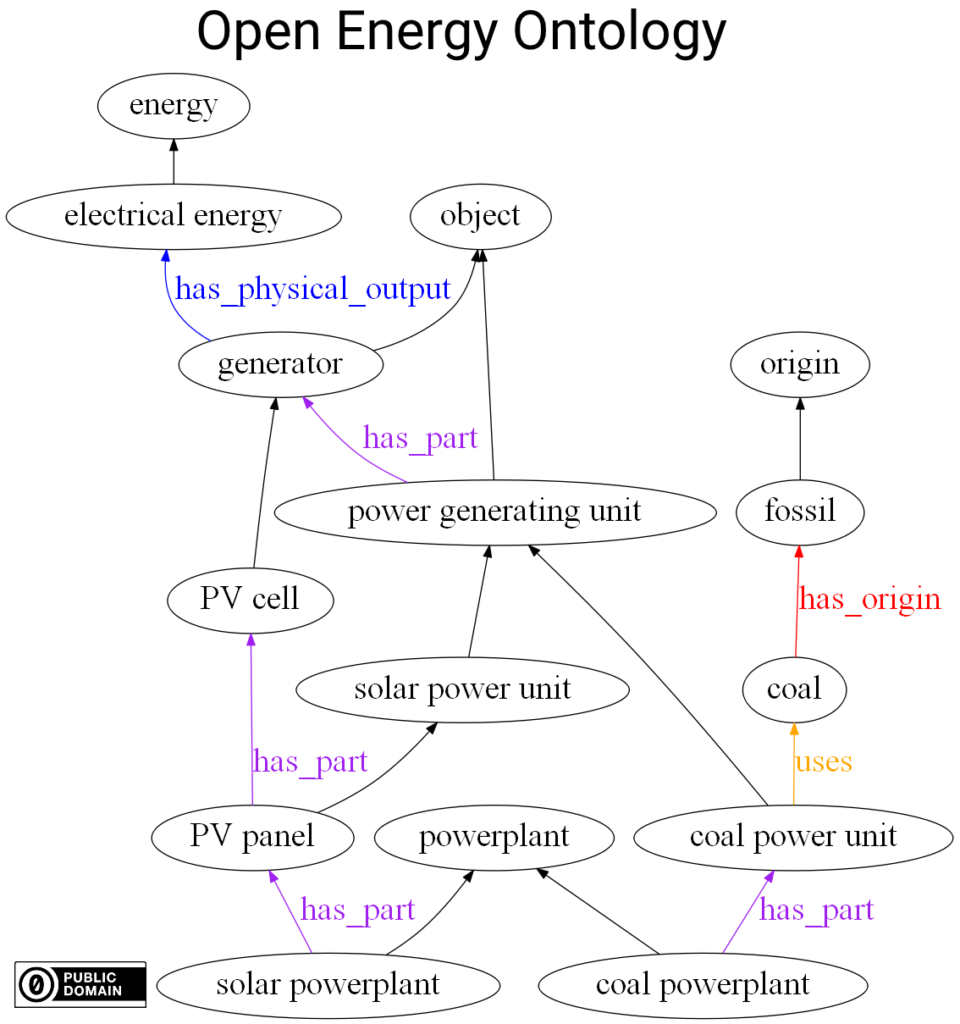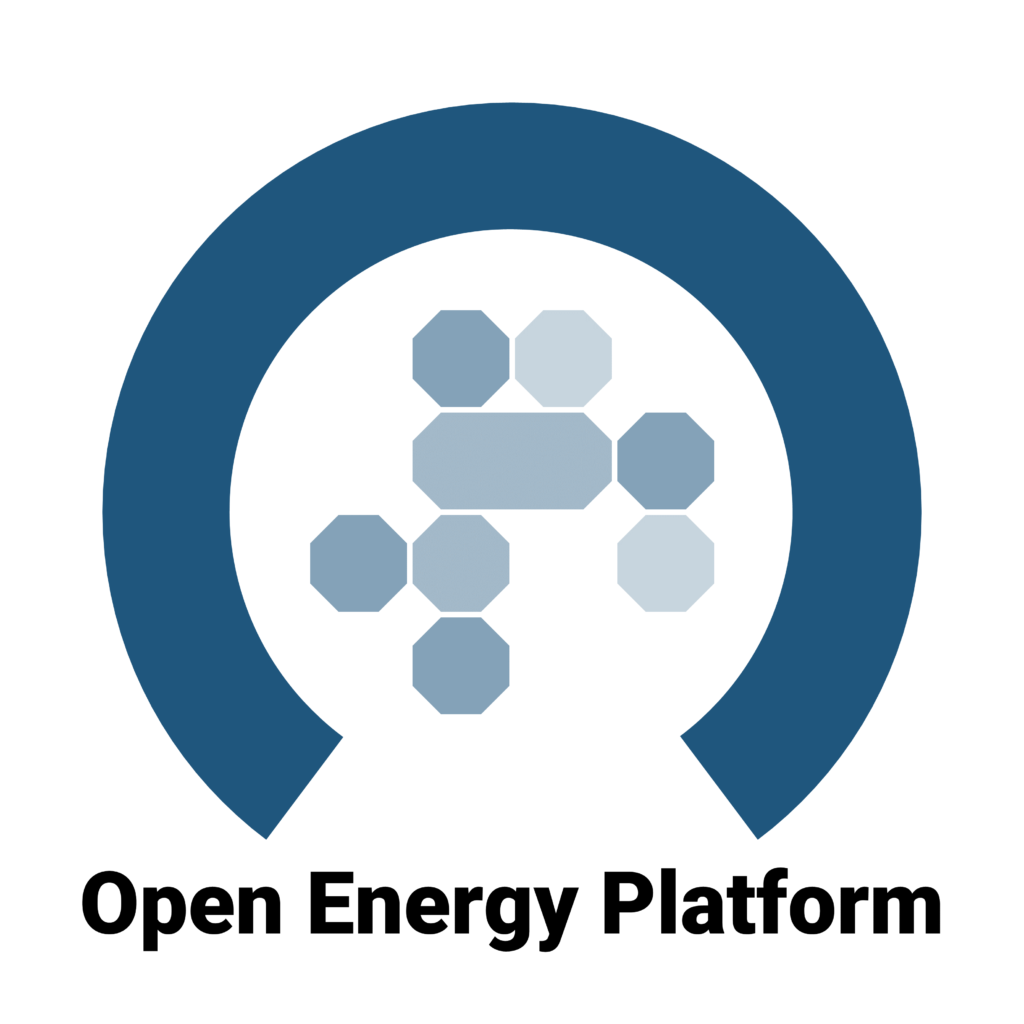
UMAS Project starts: An underground energy storage for Berlin
10. June 2020
eGon project website is now available
15. June 2020Open Energy Ontology for Energy System Modeling published – Better Collaboration and Transparency in Energy Research

June 11th 2020 | The first version of the Open Energy Ontology (OEO) is released today. The OEO standardizes the language in energy system analysis, enabling better research in these key areas: It improves exchange between energy system models, the exchange of data and scenarios, and it increases their transparency and re-usability.

Ontologies are formal concepts in computer science. They describe the properties of an area of interest and how they are related to each other by defining basic ideas and categories. As of yet, no ontology for energy system modeling existed. The OEO changes this: By providing clear definitions and interpretations of terms and relationships, the OEO supports research in multiple ways:
- Standardizing terminology: The OEO provides a controlled vocabulary for energy system modeling. It includes clear definitions that indicate how terminology is to be used. Thus, it becomes possible to identify, clarify, and disambiguate concepts.
- Data annotation and integration: Applying the OEO to data annotation in databases allows flexible, content-oriented data integration and aggregation. It adds the possibility of enhanced search functions and logical querying across datasets.
- Templates for data capture: The OEO can provide a structure for making reporting more uniform and detailed.
- Visualization: Knowledge represented in the OEO can be visualized in various ways to make it more comprehensible.
Open and collaborative development
The OEO’s development is led jointly by partners of the research projects SzenarienDB and LOD-GEOSS, as part of the Open Energy Family. The participating researchers work together as one cross-project and -institution team, openly and collaboratively. All of the development work is community-based and takes place on GitHub.
While the OEO is developed within the scope of the Open Energy Family, it is developed as an ontology for energy system modeling in general. It can explicitly be applied to other contexts and use cases as well.
Support by Steering Committee
The development of the Ontology is supported by a Steering Committee (OEO-SC) which consists of renowned experts in the energy system analysis field. The committee’s job is to raise awareness for the ontology, to promote its adoption in current and planned projects, as well as to guide its development. The OEO-SC has convened regularly since September 2019; its members are:
- Dr. Aleksandar Rakić | Project Management Jülich (PtJ) – Energy System Analysis
- Dipl.-Ing. Berit Müller | German Association fpr Solar Energy (DGS) – State Association Berlin Brandenburg
- Dr.-Ing. Hans-Christian Gils | German Aerospace Center (DLR) – Institute of Engineering Thermodynamics
- Dipl.-Inform. Hermann Bense | [bense.com] Verlagsgesellschaft für Digitales Publizieren mbH
- Dr. rer. nat. Kathrin Goldammer | Reiner Lemoine Institut (RLI)
- Dr.-Ing. Martin Robinius | Forschungszentrum Jülich (FZJ) – Institute of Energy and Climate Research; Techno-economic Systems Analysis
- Michael Dembach | Fraunhofer Institute for Communication, Information Processing and Ergonomics FKIE
- Robbie Morrison | Open Energy Modelling Community (openmod)
- Dr.-Ing. Sebastian Hellmann | University of Leipzig – Institute for Applied Informatics (InfAI)
- Dr. Tom Brown | Karlsruhe Institute of Technology (KIT) – Institute for Automation and Applied Informatics (IAI)
Project partners
Participating institutions in the research projects SzenarienDB and LOD-GEOSS are Fraunhofer IEE, Reiner Lemoine Institut, Öko-Institut, the University of Magdeburg, German Aerospace Center, Forschungszentrum Jülich, the University of Stuttgart, the University of Leipzig, and Potsdam Institut for Climate Impact Research. Both projects are funded by the Federal Ministry for Economic Affairs and Energy (BMWi).
Reiner Lemoine Institut coordinates the development process of the ontology for the participating research projects SzenarienDB and LOD-GEOSS and hosts the meetings of the Steering Committee as well as developers‘ meetings
Scope of the overarching projects

The aim of SzenarienDB is to create a publicly accessible and open database for the publication and work of energy scenario data. This includes input and output data of scenarios, including metadata and assumptions. In addition, the data is linked with the model descriptions. This leads to greater transparency, improved exchange of scenario data, and, thus, more efficient use of public funding.
In the LOD-GEOSS project, an interconnected database concept is developed on the basis of Linked Open Data (LOD) and the Semantic Web for input and result data of modeling in energy system analyses. In addition, a connection with the global earth observation system (GEOSS) will be realized for spatially-temporally resolved input data.
More information on the OEO as well as other projects of the Open Energy Family are available on the Open Energy Platform.




